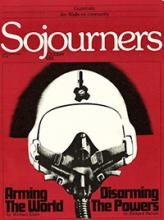Cardinal Paulo Evaristo Arns, a Brazilian, was ordained as a Franciscan priest in 1945. He later studied at the Sorbonne in Paris, earning a doctorate in literature, and returned to Brazil in 1952, where he combined teaching at a Franciscan seminary and several universities with a ministry to the poor of Petropolis, Rio de Janiero.
In 1966 Arns was named auxiliary bishop of Sao Paulo, and in 1970 he became archbishop. Under his leadership the Sao Paulo diocese has been at the forefront of the struggle for workers' rights. It has taken the part of the poor against the military government and has encouraged the renewal of church life, particularly in expanding the role of the laity and women religious. These aspects of the church's mission in Sao Paulo have been carried out through the growth and development of base communities.
Cardinal Arns' role as religious leader of Sao Paulo, Brazil's financial and industrial capital, has made his witness especially important and controversial. His work in support of labor unions in numerous strikes, many against foreign corporations, and his advocacy of a better life for the residents of Sao Paulo's many shantytowns have brought him censorship and death threats.
The following interview with Cardinal Arns was conducted this June by Brady Tyson, a professor of international relations at American University in Washington, D.C. The interview is reprinted from IFOR Report, the journal of the International Fellowship of Reconciliation.
Brady Tyson: Dom Paulo, the church in Brazil is already known all over the world for the seriousness with which it is attempting to exercise the "preferential option for the poor" called for at Medellin. What are the major steps that the Brazilian church has taken and is taking to move in this direction?
Read the Full Article

